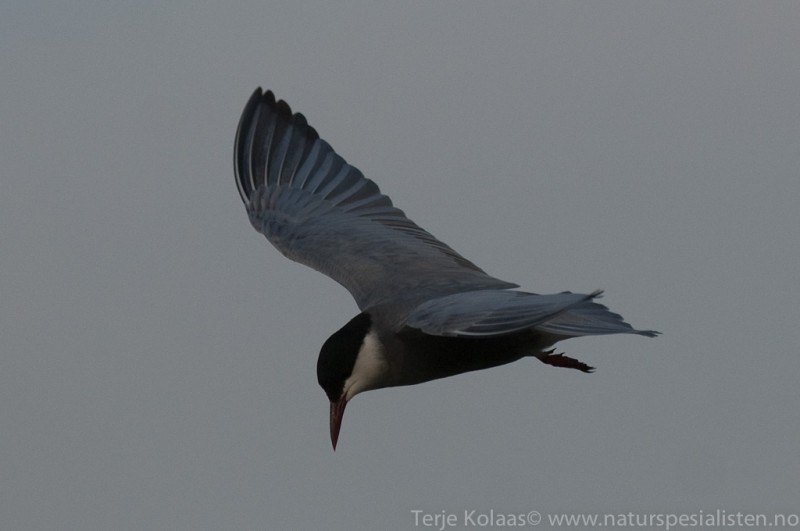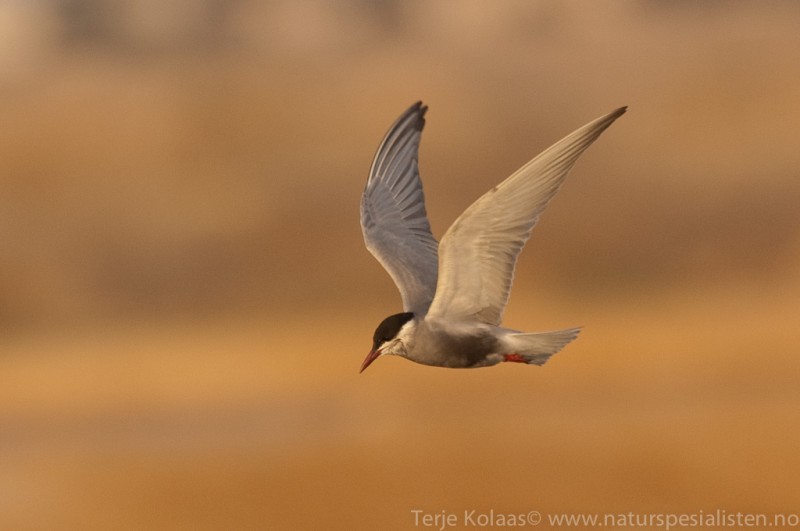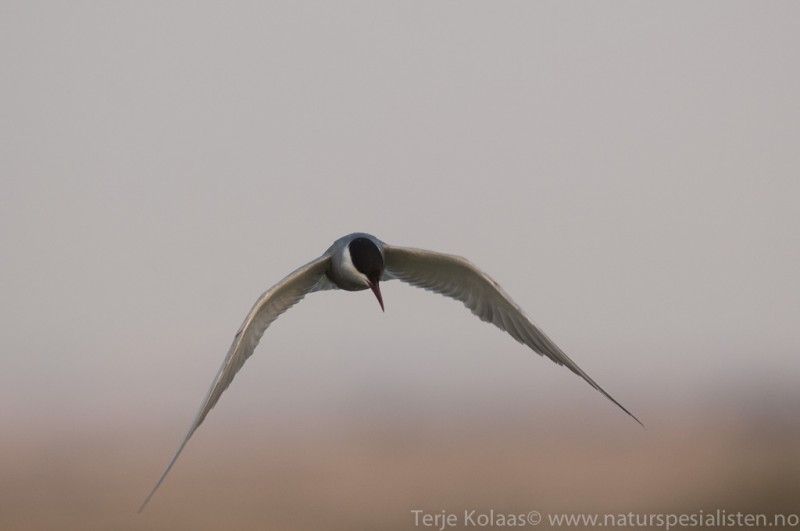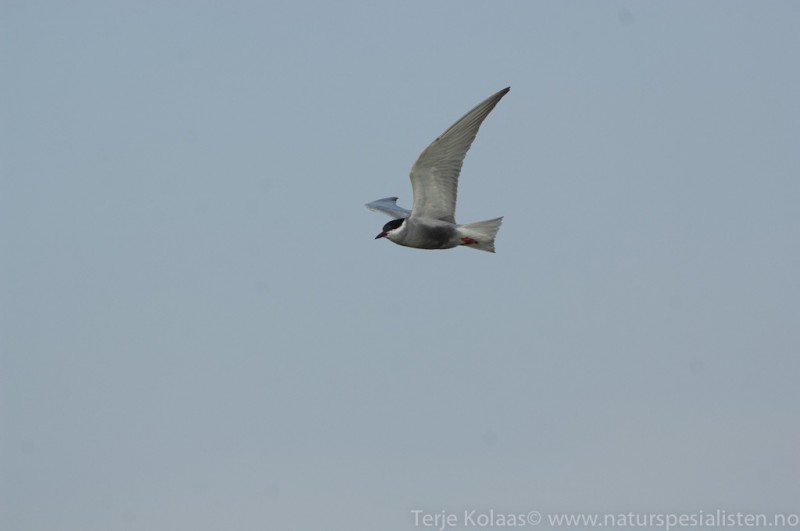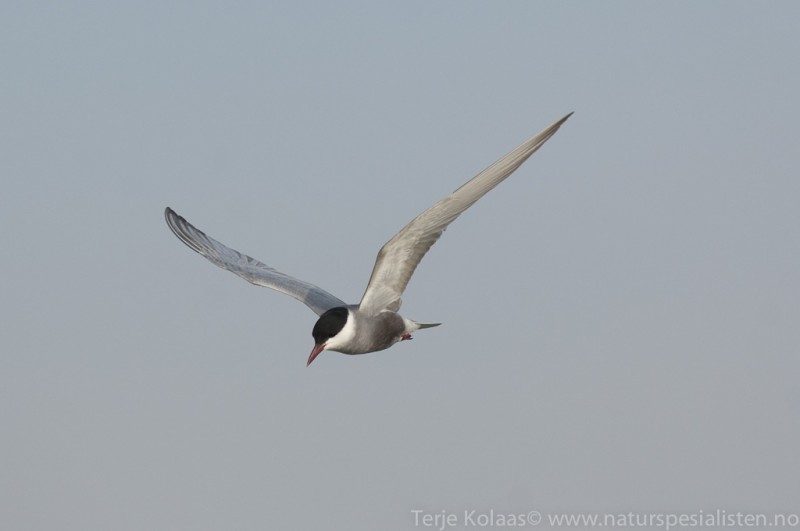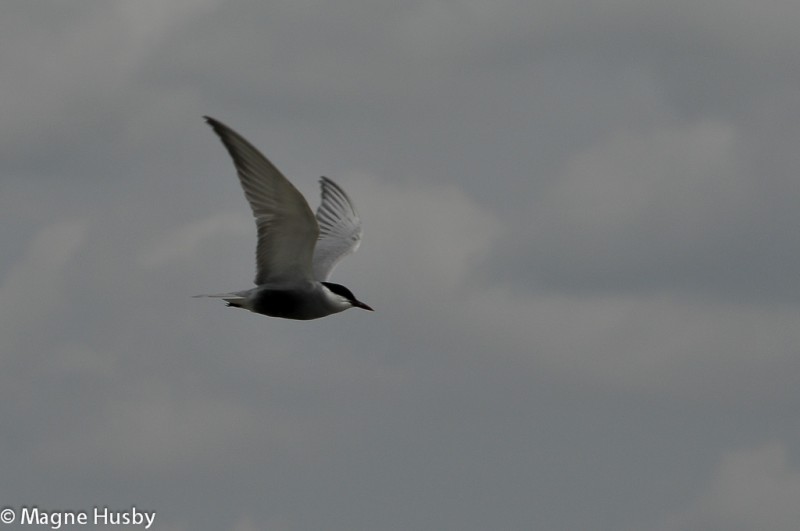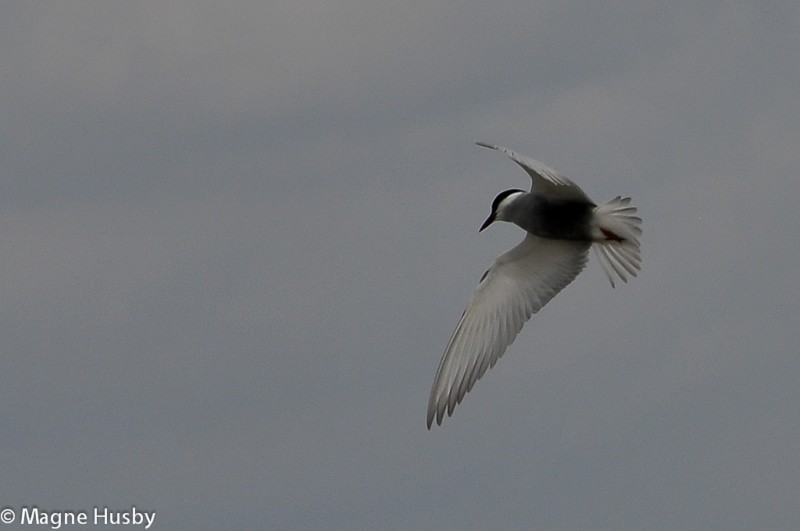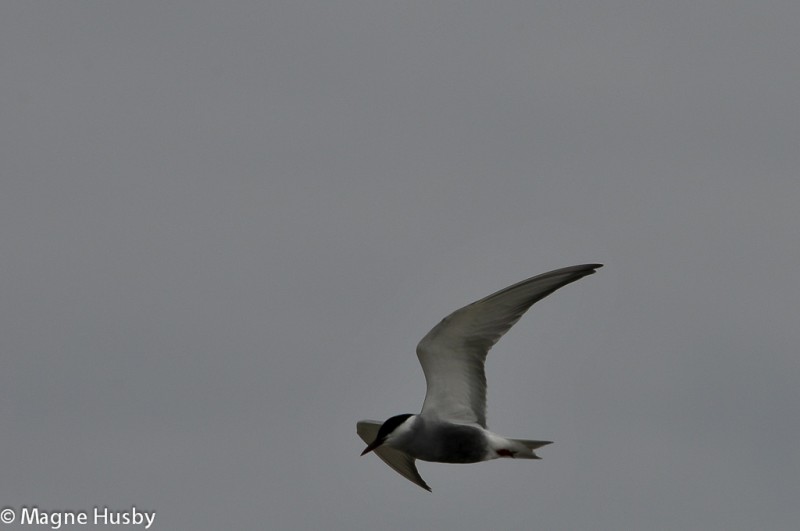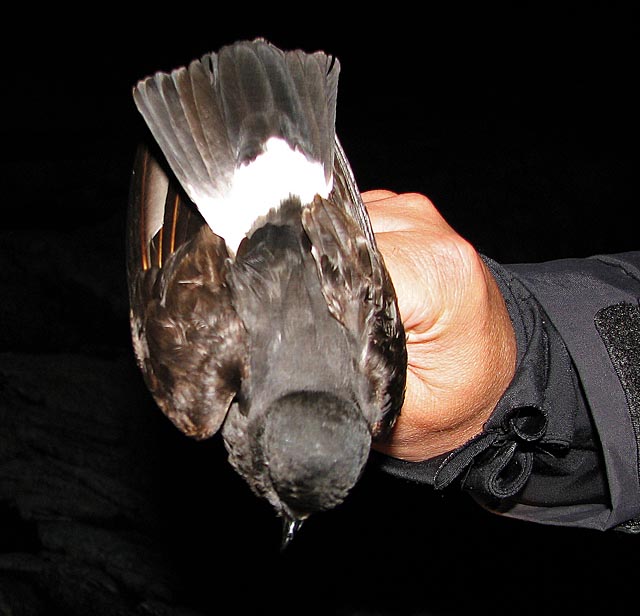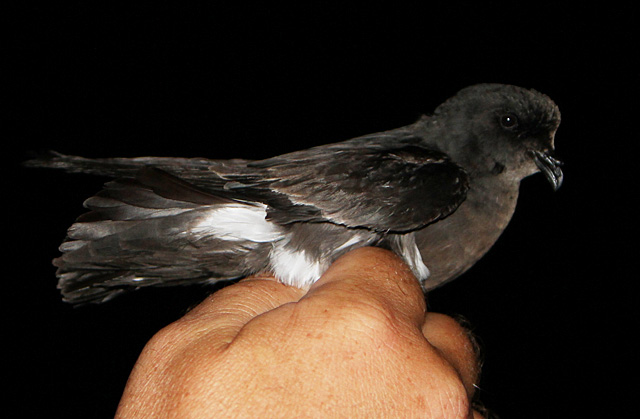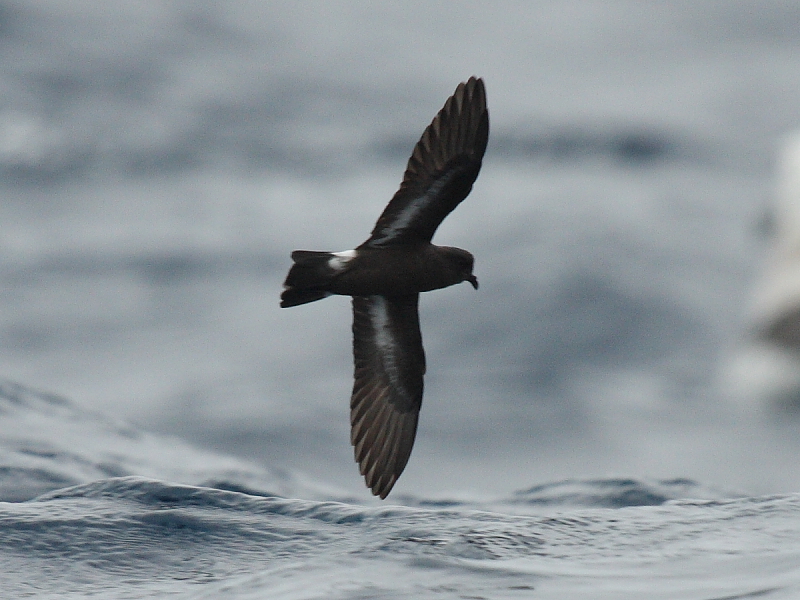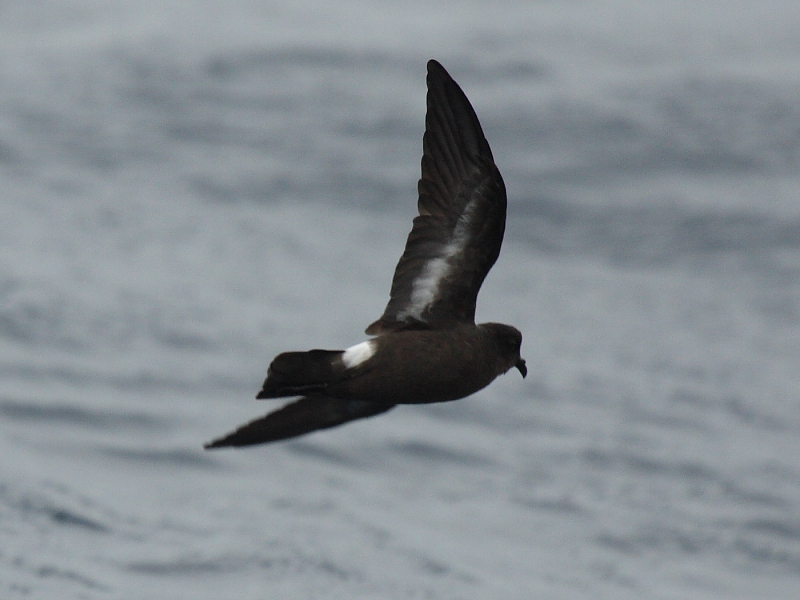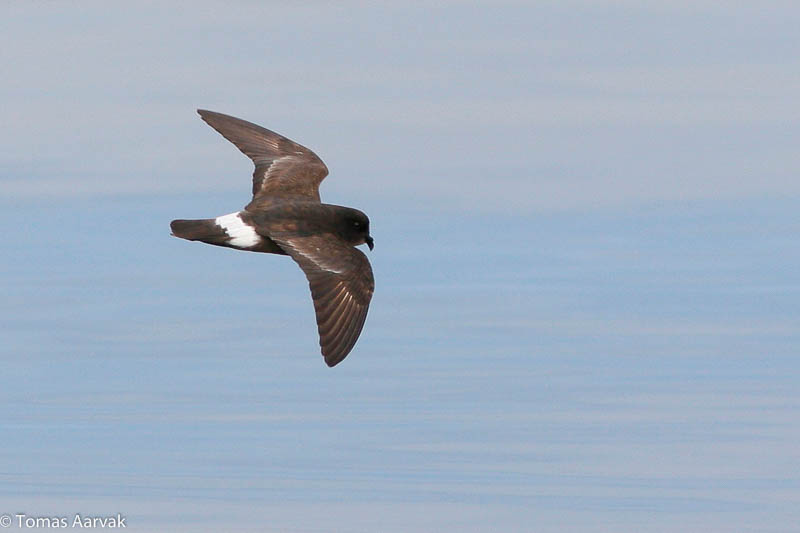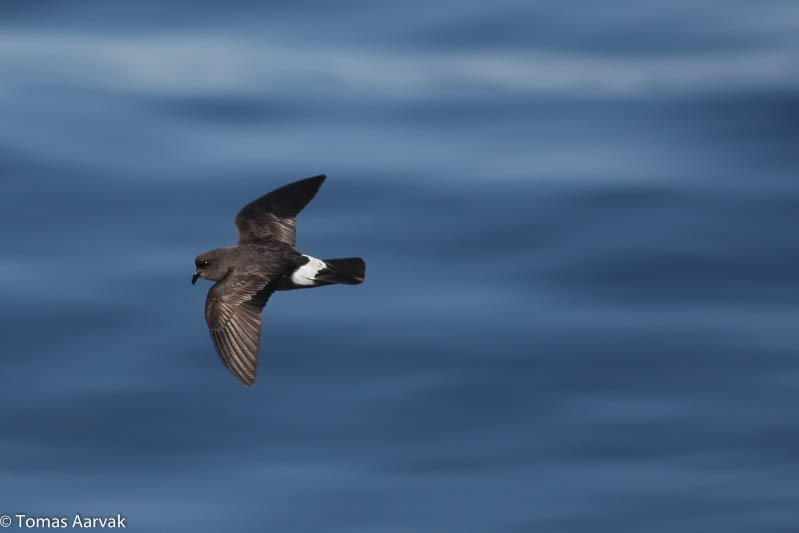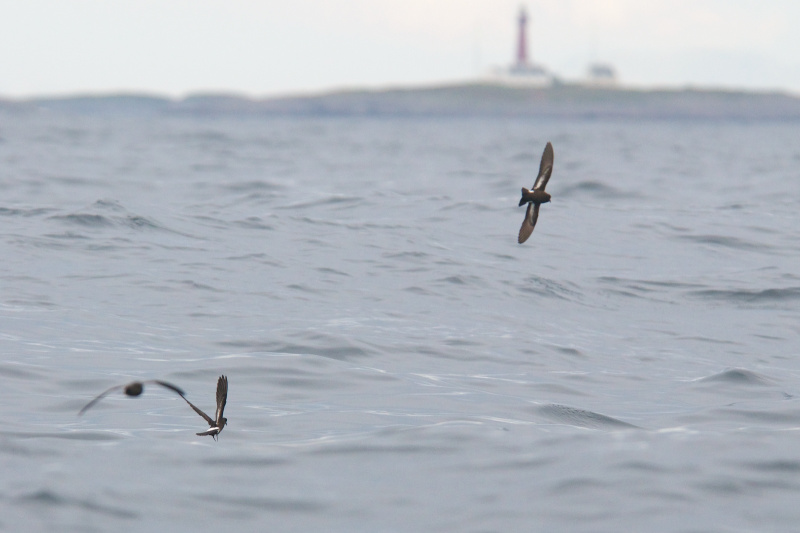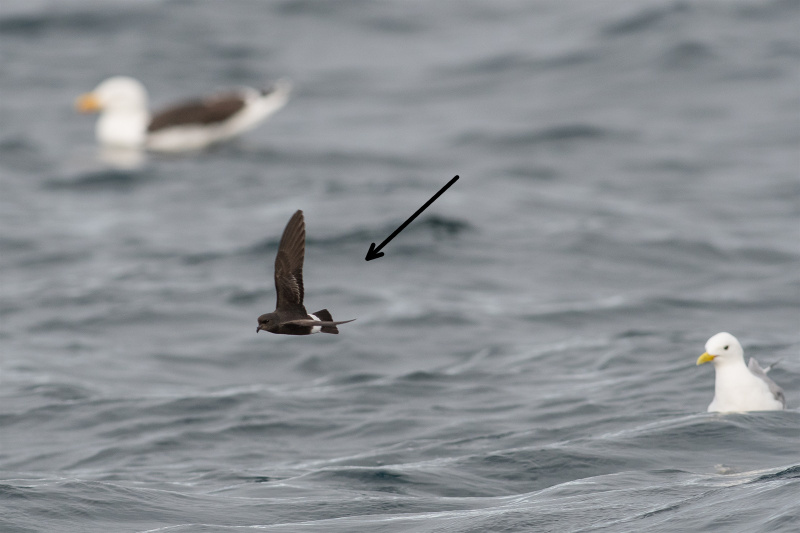Whiskered Tern (Chlidonias hybrida)
Storm Petrel (Hydrobates pelagicus)
Largest marsh tern. Liable to confusion with Sterna terns due to black cap, in addition to other marsh terns. All marsh terns (Chlidonias) differs from Sterna by lack of tail streamers, short tail with shallow fork, shorter wings and stiffer flight. Marsh terns don't plunge-dive for food but picks from surface (though Whiskered Tern may belly-plunge), mostly in fresh water. Adult Whiskered Tern easily told from other marsh terns by distinct black cap contrasting to white cheeks and throat. Underwing pale with diffuse dark trailing edge. Belly distinctly darker than Common- and Arctic Tern, but beware of variation in both species. Bill dark blood red. Adult winter: Very pale with no distinct markings except for ill-defined black mask stretching from eye to eye across nape. Forehead white and with crown white speckles. Bill black. Immature: Yellowish brown saddle with coarse dark pattern, though these are moulted in early autumn. Usually lacks dark carpal bar and cap ill-defined. Whiskered Tern generally stockier built than other marsh terns. Both immatures and adult winter show grey rump (different from Common, Arctic and White-Winged), and bill is dagger-shaped (most apparent in males).
Sound:Contact call freely used and fairly distinct: An extremely hoarse, and rasping "krreek" in various moods. Timbre comparable to Corncrake. Sometimes uttered in stuttering series "kr-kr-kr-kr-kr".
Contact call:
Distribution:
Xeno-canto: map
Ecology:Birdlife ecology
Links:
Observation.org Latest observations
Image search Flickr NB! May give other species
CCCC-sound:Patrik Åberg, Licence,Link.
CC-photo:Jurrien van Deijk, Licence,Link.
CC-photo:Geert Moris, Licence,Link.
Rarely seen, small petrel. Compact with shorter wings and tail, and blacker plumage than Leach's Storm-Petrel. Squared, unforked tail. White patch on upper tail coverts that reaches down on each side, with more square-cut edges than in Leach's. Also lacks the grey upper wing-band of latter, but shows white stripe on underside of wing. Flight-pattern bat-like with quick fluttering wing-beats and less powerful, and only short, gliding sequences. Sometimes patters with feet on the surface or rests on water. Visits breeding ground at night.
Sound:Heard at breeding ground. Dry, cyclic, rattling and cooing, interrupted by deeper nasal moaning or a higher pitched "kee-ee-kee", with emphasis on second syllable.
Song:
Distribution:
Wikipedia: map (se also Xeno-canto below)
Ecology:Birdlife ecology
Links:
Observation.org Latest observations
Image search Flickr NB! May give other species
CC
 English
English Albanian
Albanian
 Armenian
Armenian
 Bulgarian
Bulgarian
 Catalan
Catalan
 Croatian
Croatian
 Czech
Czech
 Danish
Danish
 Dutch
Dutch
 Finnish
Finnish
 French
French
 Georgian
Georgian
 German
German
 Greek
Greek
 Hungarian
Hungarian
 Italian
Italian
 Latvian
Latvian
 Lithuanian
Lithuanian
 Macedonian
Macedonian
 Norwegian
Norwegian
 Polish
Polish
 Portuguese
Portuguese
 Romanian
Romanian
 Russian
Russian
 Sami : Lule sami
Sami : Lule sami
 Sami : North sami
Sami : North sami
 Sami : South sami
Sami : South sami
 Scientific names
Scientific names
 Serbian
Serbian
 Spanish
Spanish
 Swedish
Swedish
 Ukrainian
Ukrainian


